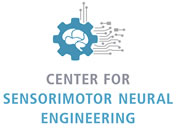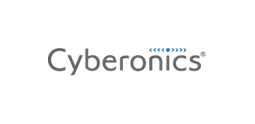Public Lecture, Monday, June 16th, 7 PM at Kane Hall 130
The Brain on Circuit Training: Finding and Fixing Misfiring Neural Circuitry
A presentation by Dr. Andres Lozano with an interactive discussion to follow, moderated by David Heil.
University of Washington
The Brain on Circuit Training: Finding and Fixing Misfiring Neural Circuitry
A presentation by Dr. Andres Lozano with an interactive discussion to follow, moderated by David Heil.
Deep brain stimulation is used to deliver electrical signals to misfiring neural circuits in the brain. This technology is used to control Parkinson’s disease tremors and is being tested in epilepsy, obesity, obsessive-compulsive disorder, intractable depression, and other areas. Dr. Lozano shared his future vision for deep brain stimulation and discussed its implications.
Kane Hall/UW campus map here.
Related TED Talk by Dr. Lozano.
Conference Program
See downloadable PDFs here for Full Agenda
![]() and Poster Abstracts
and Poster Abstracts
![]()
Sessions were held in the UW Tower Auditorium each morning, on the Mezzanine Level.
Tuesday, June 17th |
|
| 7:30-8:15 AM | Registration and light breakfast - UW Tower Auditorium Lobby/Mezzanine |
| 8:15-8:30 AM | Welcome and NeuroFutures Vision - UW Tower Auditorium Rad Roberts, Center for Sensorimotor Neural Engineering |
| 8:30-9:00 AM | The United States Neuroscience Roadmap - UW Tower Auditorium Philip Rubin, Office of Science and Technology Policy |
| 9:00-10:15 AM | Functional Mapping Informs BCI and Neuromodulation Innovations UW Tower Auditorium Andres Lozano, Clinical applications of deep brain stimulation, University of Toronto Richard Buxton, The potential and the challenge of assessing neural activity with functional MRI, University of California San Diego Richard Andersen, Cognitive prosthetic devices in human parietal cortex, California Institute of Technology |
| 10:15-10:45 AM | Refreshment Break |
| 10:45-11:45 AM | Measuring, Mapping, and Modifying Cognitive Functions UW Tower Auditorium Tom Grabowski, Functional connectivity via resting state fMRI in humans, University of Washington Justin Sanchez, Systems-based neurotechnology for neuropsychological illnesses, Defense Advanced Research Projects Agency (DARPA) Brian Kopell, Neuromodulation presents a challenge to neuropsychiatric diagnosis, Mt. Sinai Hospital |
| 11:45-Noon | Lightning talks from poster presenters - UW Tower Auditorium 1 minute + 1 slide. All poster presenters are invited. |
| 12:00-1:45 PM | Lunch, posters, discussion - UW Tower South Cafeteria |
| 2:00-3:15 PM | The Role of Connectivity in Target Selection for Neuromodulation Hotel Deca Ballroom Christopher Kroenke, Cortical cytoarchitecture revealed from diffusion based MRI, Oregon Health & Science University Kim Burchiel, Finding new targets and indications for deep brain stimulation, Oregon Health & Science University David Newell, Ultrasound for neurological disorders, Swedish Neuroscience Institute Bret Schneider, Modulation of brain networks with multi-coil stimulation, Cervel Neurotech |
| 3:15-3:30 PM | Refreshment Break |
| 3:30-4:45 PM | Mining Shared Neural Data Sets Hotel Deca Ballroom Magali Haas, Introducing Neurosensors into Systems Medicine & Predictive Computational Modeling of Brain Disease, Orion Bionetworks Julie Harris, The Allen Mouse Brain Connectivity Atlas, Allen Institute for Brain Science Mike Hawrylycz, The canonical genetic signatures of the adult human brain, Allen Institute for Brain Science Paul Fearn, HIDRA/ARGOS: The Hutch/UW Cancer consortium informatics platform for integrating and visualizing clinical and molecular data for brain cancer, Fred Hutchinson Cancer Research Center |
| 4:45-5:30 PM | Resources and Partnering Opportunities – Part 1 Hotel Deca Ballroom Bart Keogh, Centralized neuroradiology post-processing services, Radia Inc. Rajesh Rao, Neural engineering collaboration opportunities with the Center for Sensorimotor Neural Engineering, University of Washington John Henson, NeuroNEXT clinical trial consortium, Swedish Neuroscience Institute |
| 6:00-8:00 PM | Reception at the Burke Museum |
Wednesday, June 18th |
|
| 7:30-8:00 AM | Registration and light breakfast- UW Tower Auditorium Lobby/Mezzanine |
| 8:00-9:15 AM | The Past, Present, and Future of Closed-loop Neuromodulation UW Tower Auditorium Milton Morris, Applying lessons from cardiac devices to neuromodulation, Cyberonics Eberhard Fetz, Applications of bi-directional brain-computer interfaces, University of Washington Tim Denison, Technology for bi-directional brain computer interfaces, Medtronic Ryder Gwinn, Responsive Neurostimulation for Epilepsy, Swedish Neuroscience Institute |
| 9:15-10:15 AM | Learning, Plasticity, and Adaptation in Neural Interfaces UW Tower Auditorium Chet Moritz, Cortical-spinal neuroprosthesis, University of Washington Jeffrey Ojemann, Learning mechanisms for brain computer interfaces, University of Washington Adrienne Fairhall, Computational analysis of neural adaptation, University of Washington |
| 10:15-10:45 AM | Refreshment break |
| 10:45-11:45 AM | Neural Engineering Approaches for Auditory and Memory Prostheses UW Tower Auditorium Josh Jacobs, Probing human memory with direct brain recording and stimulation, Drexel University Adrian KC Lee, Using BCI to determine auditory focus in noisy environments, University of Washington Les Atlas, Modulation encoding of tonality perception for cochlear implants, University of Washington |
| 11:45-Noon | Lightning talks 1 minute + 1 slide |
| 12:00-1:45 PM | Lunch, posters, discussion |
| 2:00-2:45 PM | Resources and Partnering Opportunities – Part 2 Hotel Deca Ballroom Bob Wilcox, Northwest NeuroNeighborhood initiative, Viket Medical Norman Beauchamp, Radiology facilities and collaboration opportunities, University of Washington Kip Ludwig, NINDS programs and opportunities |
| 2:45-3:45 PM | Generating and Handling Large Neural Data Sets Hotel Deca Ballroom Hanchuan Peng, High-throughput neuroanatomy and data mining, Allen Institute for Brain Science Tim Blanche, Order of magnitude improvements for neural interfaces, Allen Institute for Brain Science Bing Brunton, Sparse sensing tools for mining neural signals, University of Washington Matt Reynolds, Novel wireless power and data transfer systems, University of Washington |
| 3:45-4:00 PM | Refreshment break |
| 4:00-4:45 PM | Neurotechnology Development and Brain Mapping: A Virtuous Cycle Hotel Deca Ballroom Ed Lein, Transcriptome and connectome mapping, AIBS Craig Forest, Automated patch clamp electrophysiology of neurons in the living brain, Georgia Institute of Technology |
| 4:45- 5:00 PM | Closing remarks We will adjourn at 5pm. |
Host:
Center for Sensorimotor Neural EngineeringUniversity of Washington
Partner organizations:
Northwest NeuroNeighborhood
Allen Institute for Brain Science
Oregon Health & Science University









